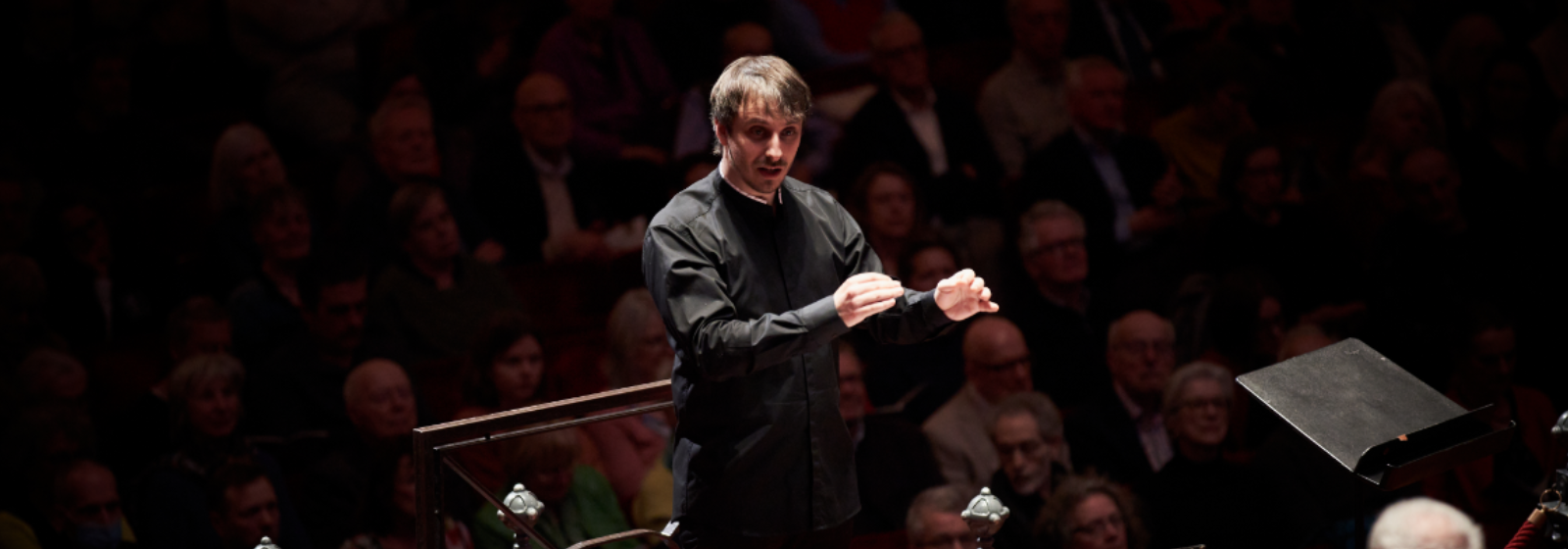
Budapest
RACHMANINOV: VESPERS
Pászti/2
SERGEI RACHMANINOV: Vespers, op. 37
Beáta Müller alto
Sándor Boros tenor
Hungarian National Choir (choirmaster: Csaba Somos)
Conductor: Benjamin Goodson
Upon hearing the name of Sergei Rachmaninov, most music lovers will think of the rich emotions and virtuosity of the Russian composer’s piano works. Yet there is far more to the life’s work of this great of the late Romantic era: we are also familiar with his orchestral compositions, and in terms of mood and style his church choral work Vespers, also known as the All-Night Vigil, is different again. The piece has special requirements and is rarely sung today, which is why the opportunity to hear this extraordinary creation performed by the Hungarian National Choir, with Benjamin Goodson conducting, is a truly unique occasion.
In this a cappella choral work, Rachmaninov set texts from the Russian Orthodox all-night vigil ceremony to music. He worked on the composition in January and February 1915, before it received its world premiere on 23 March in Moscow. The composer felt a strong, profound and intrinsic attraction to this composition. Along with his oratorical work The Bells, it was one his two favourite works, and he requested the fifth movement to be played at his funeral. In line with the prescriptions of the Orthodox liturgy, Rachmaninov constructed ten of its 15 movements from the melodies of traditional church vocals. The All-Night Vigil is seen as the culmination of 20 years of interest expressed in Orthodox church music on the Russian classical music scene. Tchaikovsky was the instigator of this process, and also set the the all-night vigil to music. Though music historians have identified many similarities between Tchaikovsky and Rachmaninov’s works, they also point out that Rachmaninov’s piece is rather more complex than Tchaikovsky’s. The transfigured atmosphere of All-Night Vigil and the archaic clarity of its choral sound, rich in dark colours, offers a particularly authentic guide to the world of Slavic liturgical music.
Dear Audience,
Emerging from under the shadow of the coronavirus epidemic, this season has finally provided us with a calmer and more predictable environment, allowing the large-scale concerts by the Hungarian National Choir to successfully take place at last. Incorporating your feedback, we wish to continue our efforts to present our ensemble in the most diverse possible fashion next season as well.
The first of this series of four concerts will feature Liszt’s most significant work: one that exceeds the boundaries of a standard oratorio. The Christus oratorio is a gigantic work covering the entire liturgical year, with a symphonic orchestra, the soloists and, of course, the choir each playing a huge role. I myself have been preparing to conduct this masterpiece for decades, so it is a great honour to be able to take the stage in the company of such wonderful ensembles as the Hungarian National Choir and the Szent István Philharmonic. Incidentally, this performance is taking place in the Pesti Vigadó, the same venue where the work received its Hungarian première, almost 150 years to the date after that event.
The second concert in our season ticket series promises to be a true musical and acoustic experience, as on this evening we will be singing Rachmaninov’s a cappella cycle Vespers. Since the work calls for unusual voice types (such as contrabasses), we are glad to be able to employ the special abilities of our ensemble.
Conducting this concert will be the Netherlands Radio Choir’s talented young choirmaster, Benjamin Goodson.
After several years of planning, it is a great pleasure for us to finally be able to present Dvořák’s rarely heard Czech-language cantata The Spectre’s Bride. The singers performing the fairy-tale ballad under the baton of Tomáš Brauner are all excellent artists from the Czech Republic.
The final concert of the Pászti season ticket series concludes our musical journey with a programme of Hungarian music. This evening affords us the opportunity to hear Zoltán Kodály’s singspiel The Spinning Room in concert version. Partnering with the Hungarian National Choir yet again will be the Hungarian National Philharmonic Orchestra, which is celebrating its centenary.
On behalf of my fellow artists and myself, I warmly welcome you to the Pászti subscription concerts for the 2023/24 season!
Csaba Somos
Choirmaster of the Hungarian National Choir

